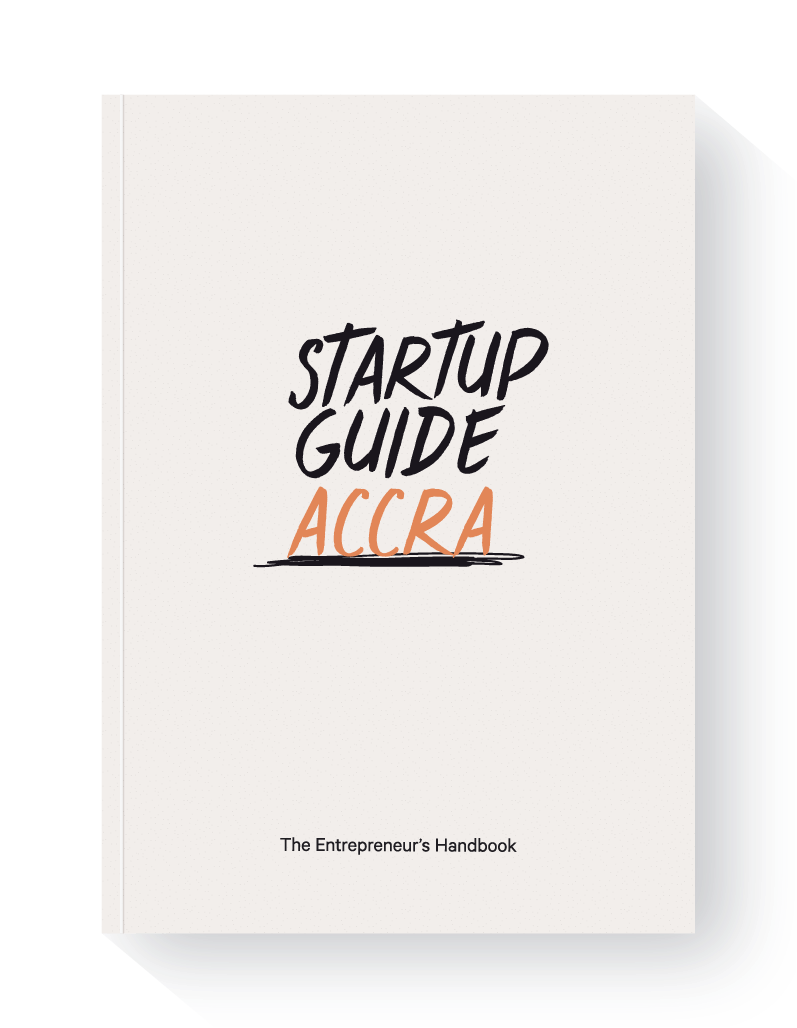How to found a startup in Accra
hana is a beacon of business, innovation and democracy, and a launchpad for entrepreneurs looking to expand and scale across West Africa. With well-developed infrastructure, reliable services and a stable economy, it’s an increasingly attractive location for startups.
Accra is the heart of the business community in Ghana, and the capital city is quickly becoming an entrepreneurial hub that attracts a wide range of people: international entrepreneurs on the lookout for new adventures, creative professionals seeking more than employment and diaspora returnees ready to apply their global skills and experience to a local context.
So how do you start up here? Informed by Startup Guide Accra, here are the essentials to starting a business in the Ghanaian capital.
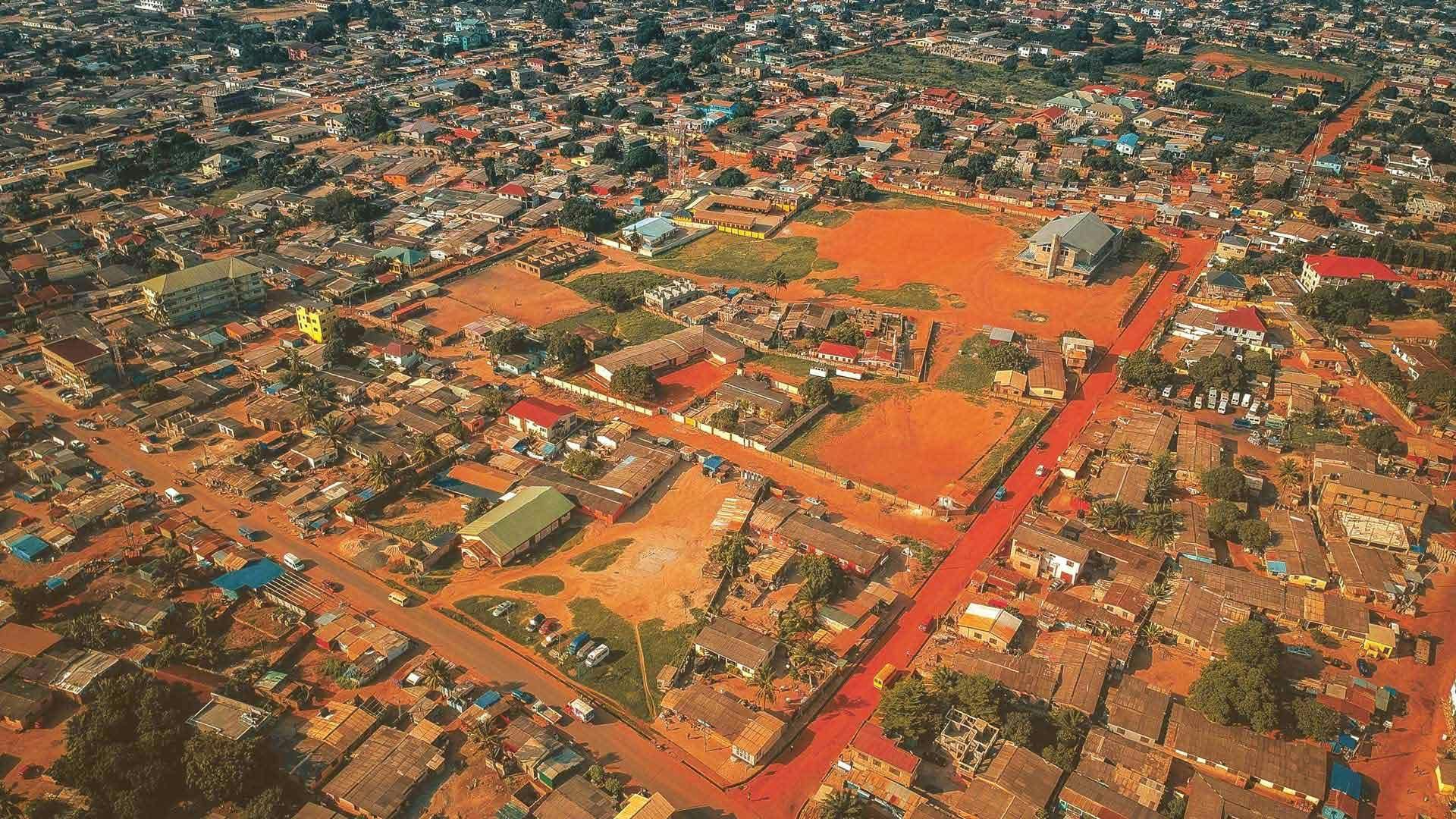
An aerial view of Accra. Photo: Virgyl Sowah
What is Accra like to live in?
From large sweeping beaches and historical sites to a vibrant nightlife with a wide choice of multicultural restaurants, there’s plenty to do in your downtime in Accra. The cosmopolitan city is home to over two million residents and has a diverse landscape featuring both modern upscale neighborhoods and colonial-era buildings. English is Ghana’s official language and it’s used widely for business and in daily life.
Like most capital cities, Accra is densely populated with traffic, especially at rush hour, and while it’s generally safe, it does have its share of frustrations like the frequent dumsor (power outages). Most Ghanaians use taxis and tro-tros (shared minivans) to get around. Tro-tros seat twelve to eighteen passengers, take specific routes and are cheap, but do not run on a schedule. Hop on at major bus stations or flag one down for a uniquely Ghanaian experience, but make sure to confirm the final destination.
There’s a relaxed pace of life here that can be a refreshing reminder to slow down, but this also means that it can take a while to get things done.
There’s a relaxed pace of life here that can be a refreshing reminder to slow down.

How are the people?
Ghanaians are friendly and care about making a good impression. Respect is important, especially for the elderly, who should be addressed as sir or madam or by their formal title. Handshakes are used in formal settings and hugs reserved for informal contexts, but the boundaries between personal and professional can be unclear. Workers often socialize together, and official meetings usually begin with a prayer. Ghanaians are religious, so don’t be surprised by a church invitation.
“Ghana Man Time,” or GMT, alludes to the penchant for lateness in Ghanaian society. It’s not unusual to wait hours to see a person of high standing and responses to emails or phone calls can be slow. Service requests often require multiple follow-ups, even for simple things like a restaurant bill, but many expats learn to appreciate the slower pace of life.
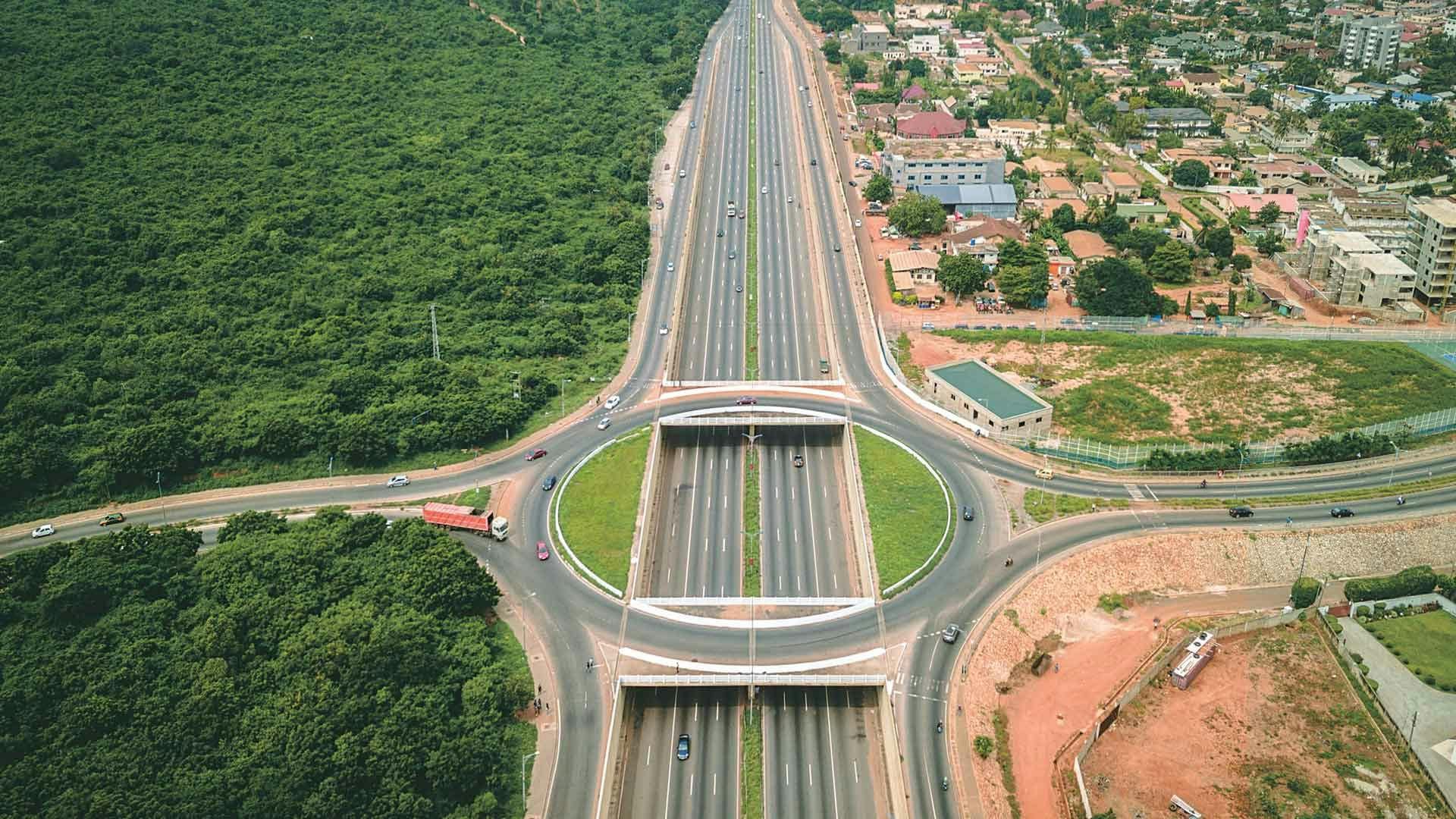
An aerial view of Accra. Photo: Tobias Nii Kwatei
Is Accra affordable?
Like anywhere, that depends on your lifestyle. But yes, on the whole Accra is an affordable city for expats. Renting a one-bedroom furnished apartment costs around GH₵2,000–GH₵5,000 ($360–$910) per month in prime locations, but you can find much cheaper options outside of the business center. Internet service may also make a significant dent in your budget, especially if you use a lot of data.
You can enjoy a satisfying meal for as little as GH₵15 ($2.70) but there are upscale options too. Groceries can be pricey if bought from supermarkets, but most locals use cheaper open air markets to do their daily shopping. Imported fruits like strawberries are expensive, so consider switching to local tropical fruits like pineapple.

What do I need to know before I move to Accra?
An entry visa is required, and applying early at your local Ghana consulate will make all the difference. You will need a valid passport, a yellow fever immunization certificate, proof of financial means, names and addresses of Ghana references, a return trip itinerary and confirmed accommodation.
For a work permit, you will also need a police certificate from your home country and proof of professional and educational qualifications. Some African nationals are visa exempt, as are holders of diplomatic and official passports from some countries. Check the Ghana Immigration Service (GIS) website for up-to-date information.
Make sure you have a yellow fever vaccine and ask your doctor about antimalarial drugs. Pack summer clothing, as temperatures hover around 30℃ (86℉) year-round. Make sure that your cell phone is unlocked for use in Ghana and bring a power bank, as power outages occur often. Ghana’s economy is cash-driven, so exchange enough for your first few days.
[Read also: Helping to build African startups from the ground up]
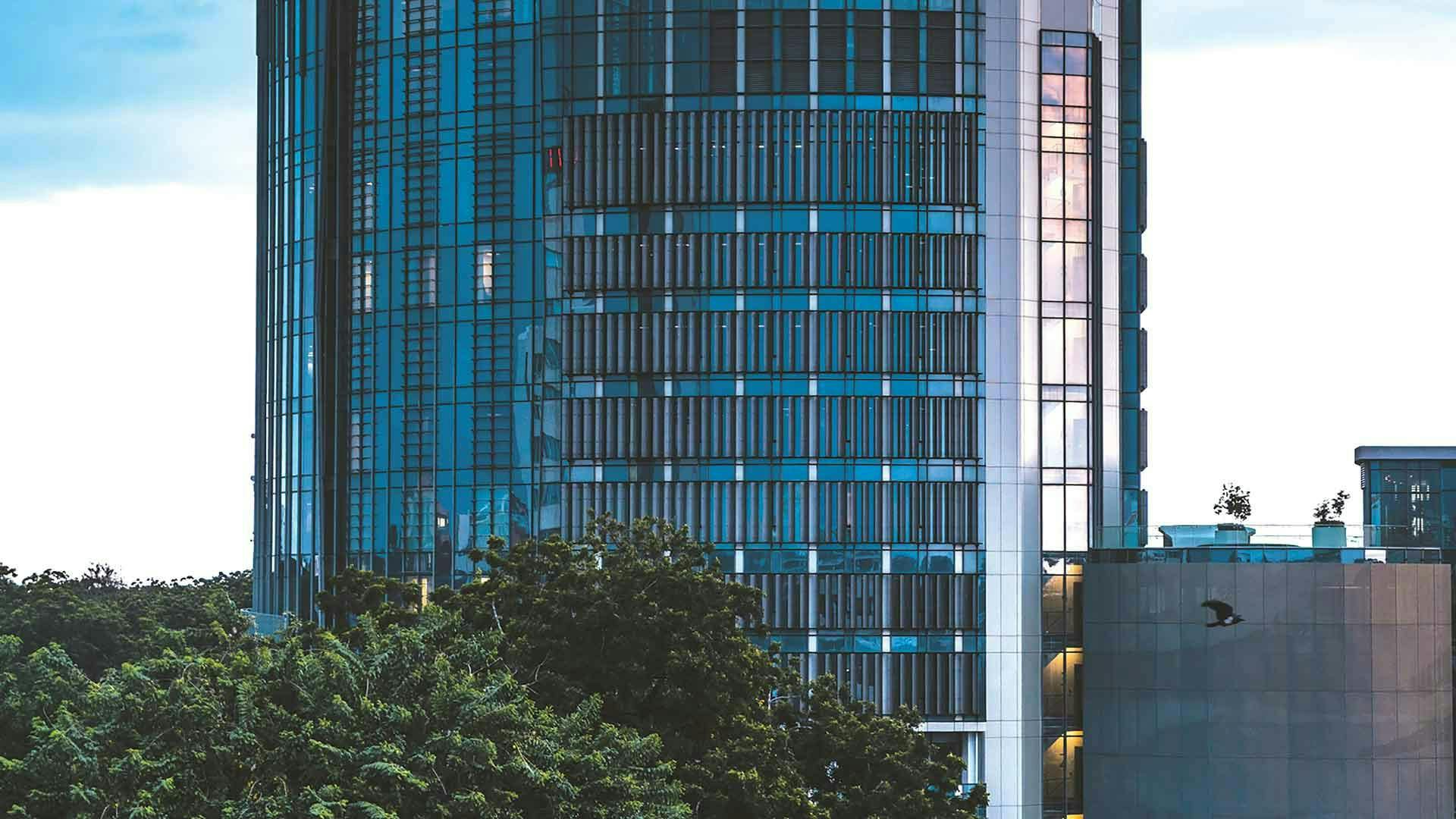
Ecobank Building. Photo: Zac Wolff
Do I need a visa? What about a work permit?
Ghana offers both single- and multiple-entry visas, and you should plan to get one ahead of traveling, although a visa-on-arrival may be granted in special circumstances. If you have a job offer, you can apply for a six-month, multiple-entry visa that will grant you sufficient time to obtain work and residence permits.
If you’re visiting Ghana on business, you’ll need to provide a letter from your organization stating the purpose of your visit, financial means and other relevant details. You will also need a supporting letter from your business associates in Ghana. For full visa requirements check the GIS website.
To work or start a business in Ghana, you must secure work and residence permits. A noncitizen ID is required and can be obtained from the National Identification Authority or any of the designated registration centers listed on the VFS Global website. Once you have this, you or your employer can apply for both a work and residence permit with GIS. You’ll need a police certificate from your country of residence, a medical report and relevant professional certifications.
Starting a business in Accra is straightforward and much of the paperwork can be done online.
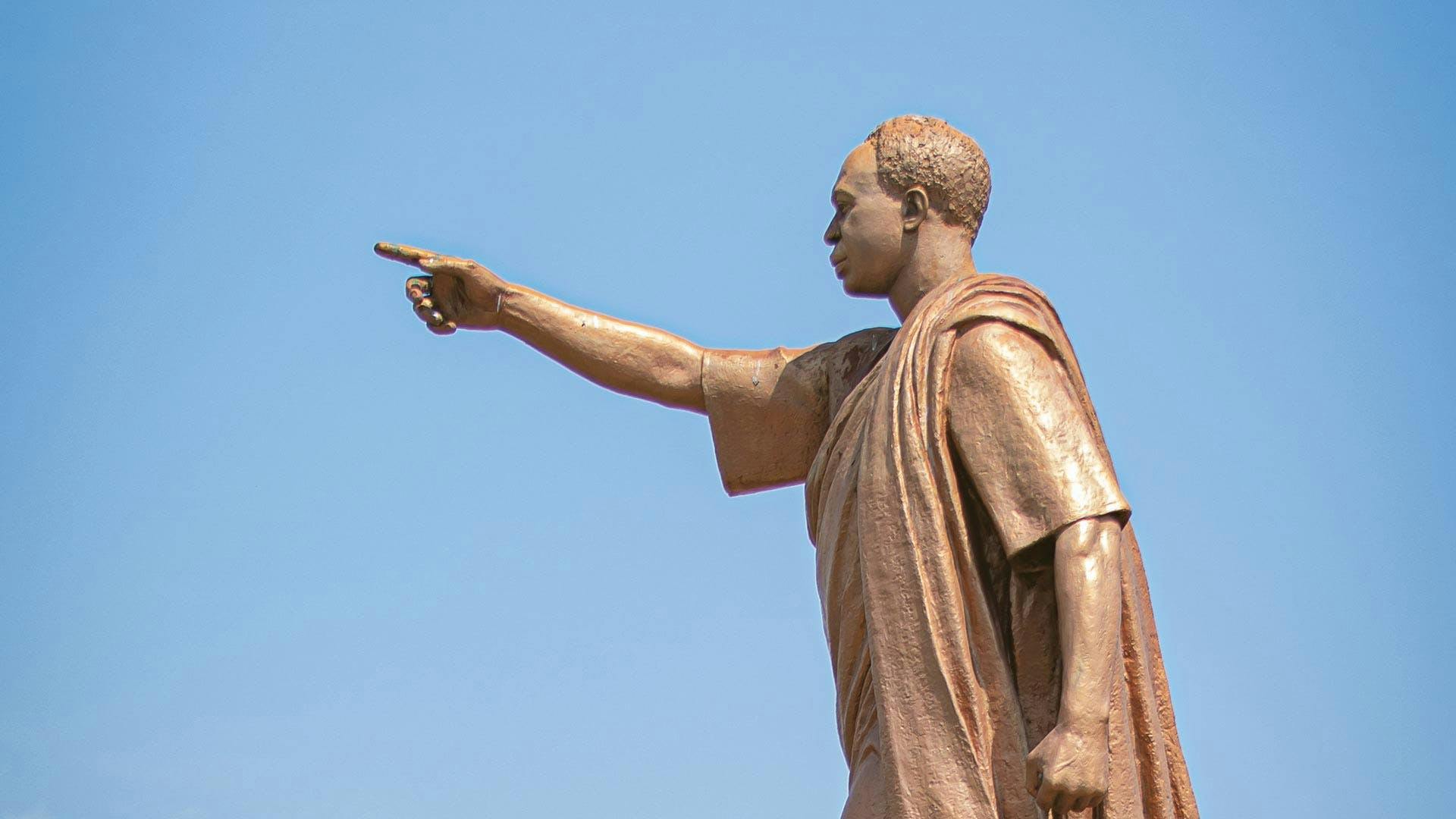
Kwame Nkrumah Mausoleum. Photo: Pixabay
How do I start a company in Accra?
Starting a business in Accra is straightforward and much of the paperwork can be done online. First, register with the Registrar General’s Department (RGD). You should know within two weeks whether your registration was successful. Hair salons, barber shops, petty trading and pool betting (except football pools) businesses are reserved for Ghanaians, so consider other options.
You’ll need to provide company director details, a company address and a mandatory, self-generated digital address from Ghana Post. You will also need a tax identification number (TIN), which you can apply for through the Ghana Revenue Authority (GRA) website. You don’t need to rent an office – it’s fine to register your business at a home address.
Ghana Innovation Hub (GIH) is a coworking space and hub for the local ecosystem. It’s focused on nurturing upcoming entrepreneurs and providing affordable space to local businesses. Both long-term members and day users can make use of the space and it’s well positioned to help you get set up and make local contacts.
As a foreigner, you must register your company with the Ghana Investment Promotion Centre (GIPC) for an investment certificate and other permits, even if your company is partly Ghanaian owned. A minimum equity value of $200,000–$1 million is required for foreign-owned companies, either in cash, machinery or equipment.
[Read also: Meet the Accra startups rethinking health and education ]
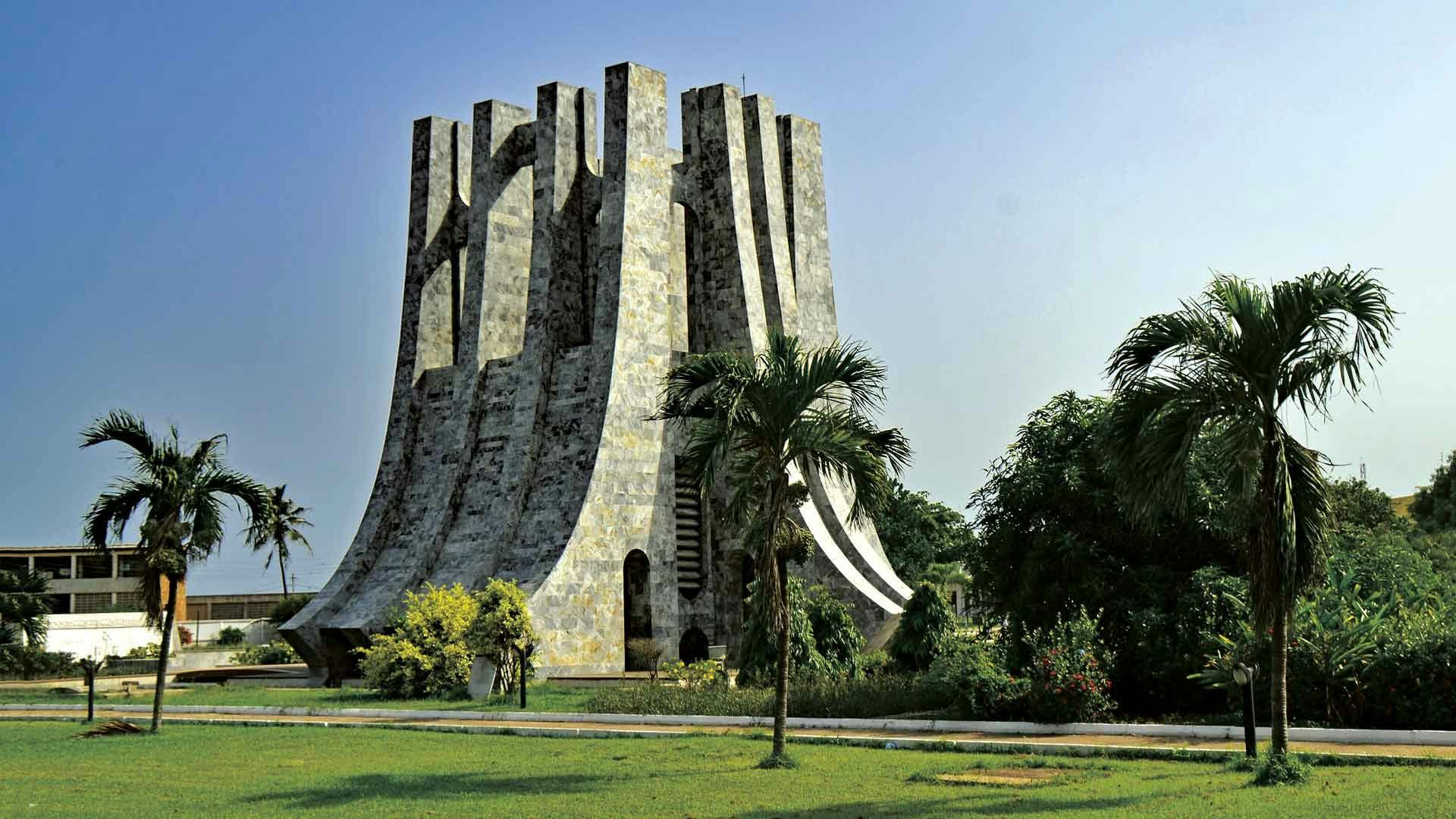
Kwame Nkrumah Mausoleum. Photo: Pixabay
What are taxes like in Ghana?
Individuals and businesses need to register with the GRA, and foreign tax payers are grouped as residents and nonresidents. Nonresidents are those who have been in Ghana under 183 days in a year and they pay a flat 25% tax rate, while residents pay taxes based on income brackets. Ghanaian and foreign-owned companies generally pay a fixed 25% tax with some variation based on industry.
You must also register with the Social Security and National Insurance Trust (SSNIT) to make social security contributions, whether as an employee or an employer. Ghana has a pension system with contributions on three different levels, two of which are mandatory. The first tier constitutes a 13% contribution to SSNIT, with an additional 5% contribution to a private scheme. Social security contributions are optional for the self-employed.

How do I handle money in Accra?
Opening a personal bank account is straightforward and can be done without an appointment. Just go to a bank with your work and residence permits, your TIN, proof of residence and a letter of introduction from your home banking institution. For a business account, you’ll also need your company’s registration and financial documents.
Bank of Ghana has a list of registered banks with branches across Ghana. Many expats prefer international banks like Absa Bank, Stanbic Bank and Standard Chartered Bank due to their global presence and experience. A small initial deposit of less than GH₵50 (less than $10) may be required, so make sure you have this and ask about account fees and conditions.
Most banks issue debit cards, but note that many small businesses only take cash. The MoMo digital transfer app is popular and can be linked to your bank account, but note that transactions often incur a 1% fee. expressPay also allows you to make bank transfers and pay your bills.
Inspired to move to Accra? Learn more about the key players and find valuable resources in Startup Guide Accra.
Written by Mariam Mahamah and Jemila Abdulai.
Repackaged by Hazel Boydell.
